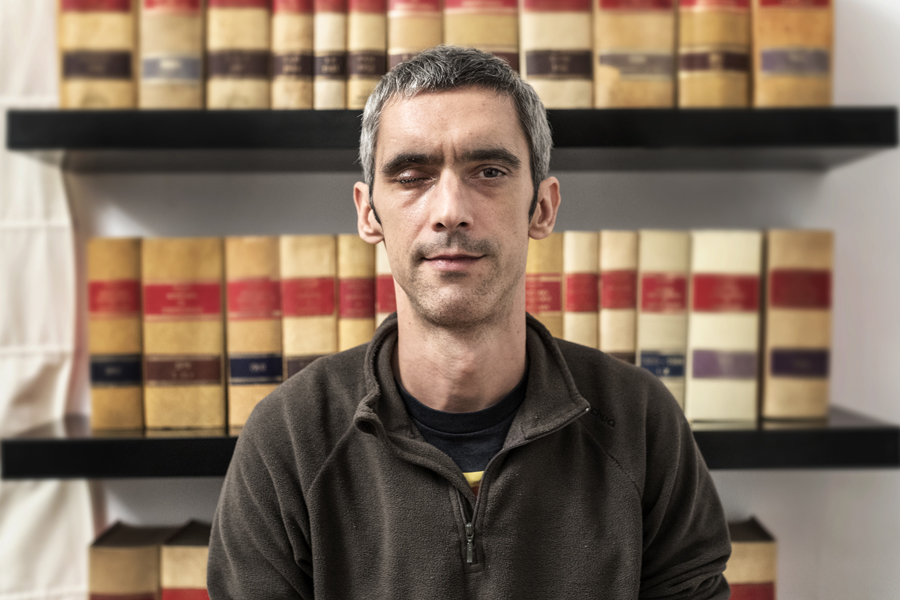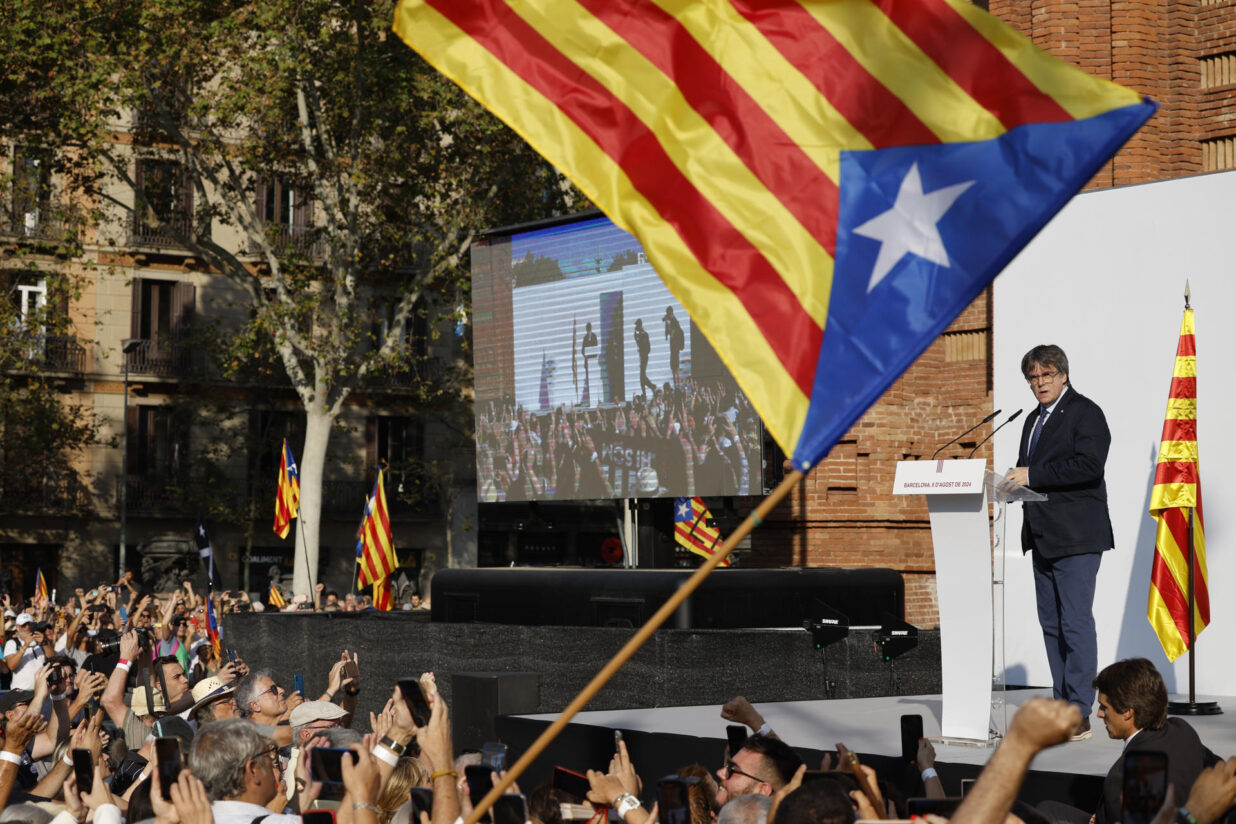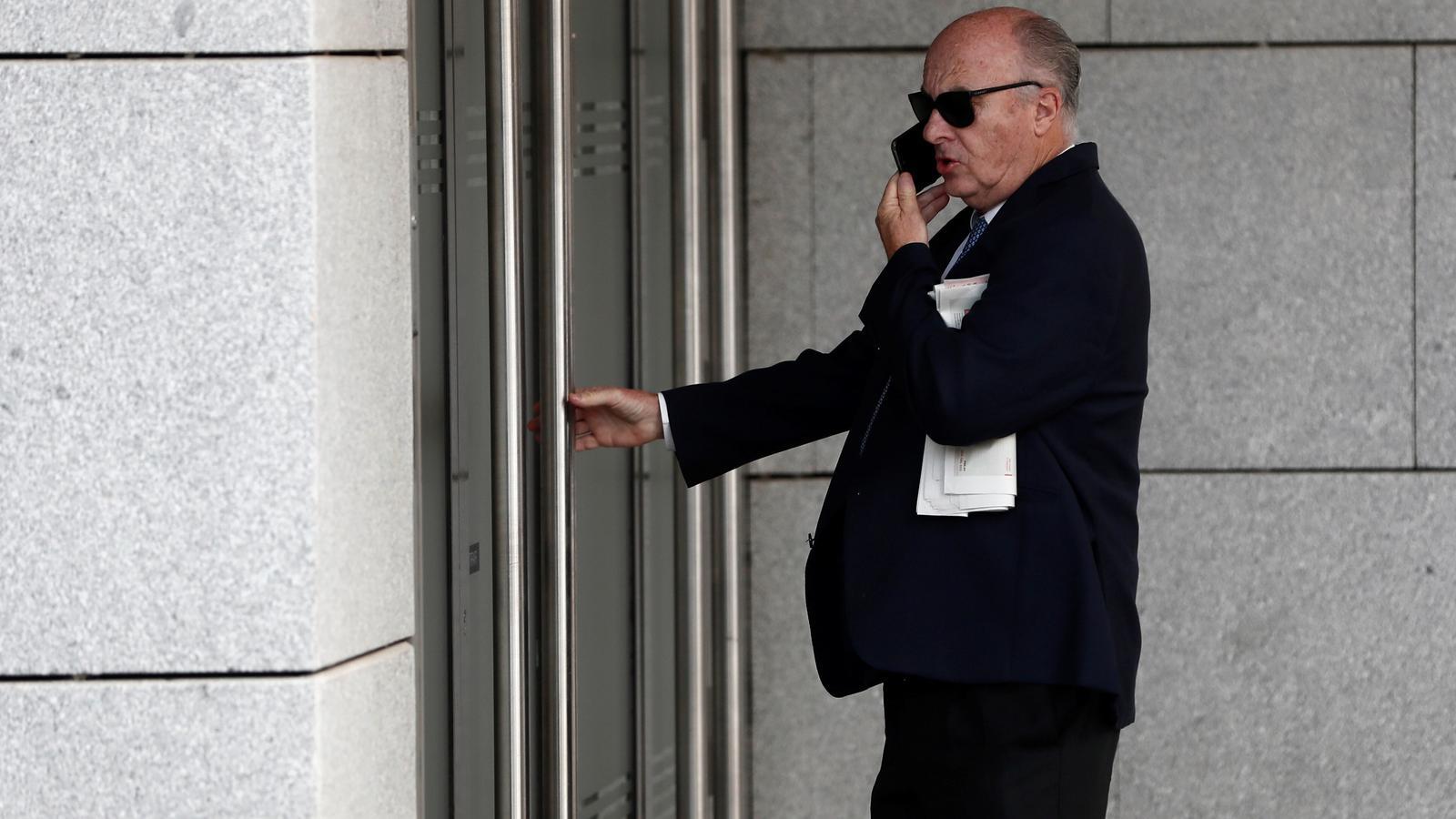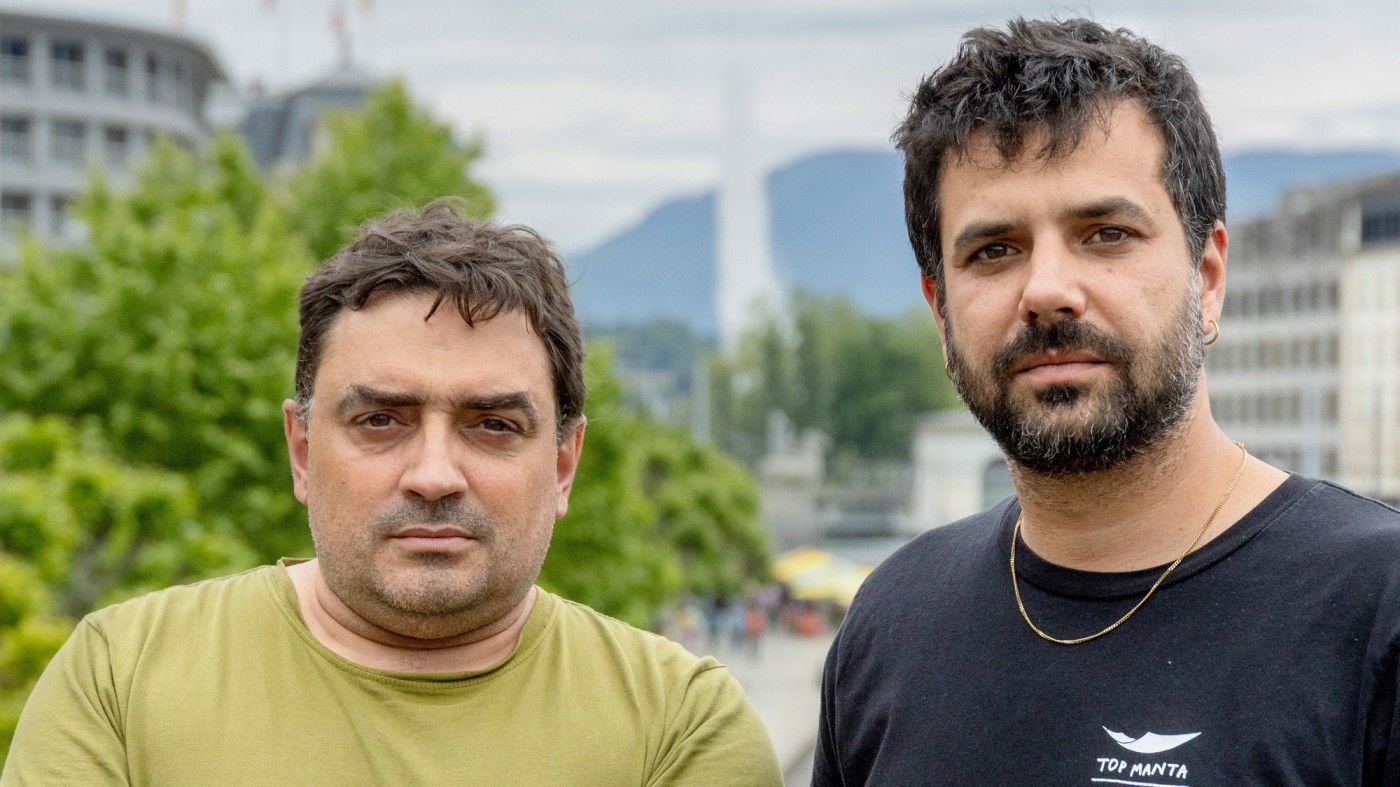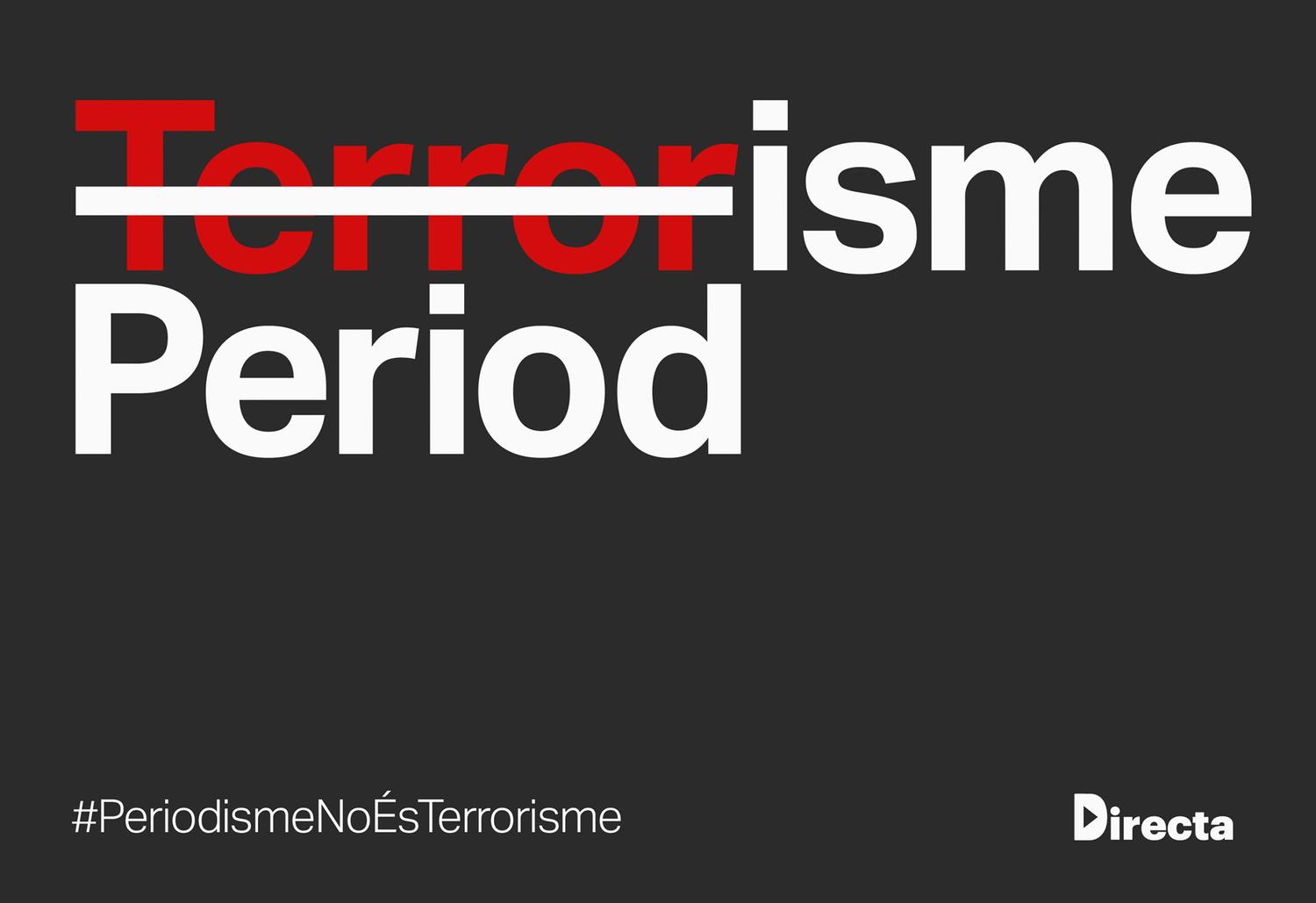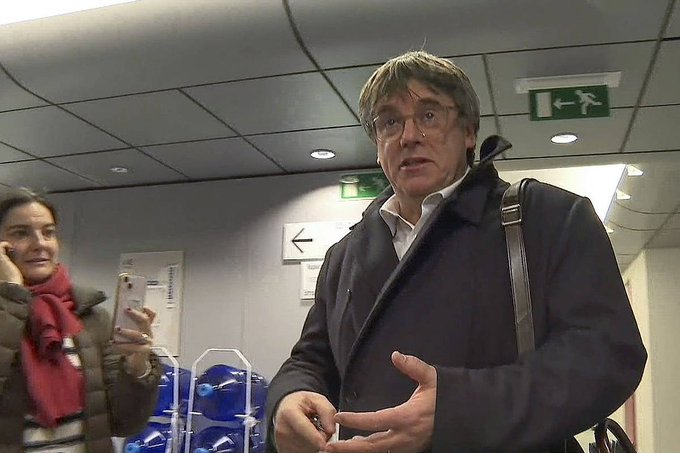196 people charged in Catalonia for cutting off the border road in the mobilizations of the Tsunami Democratic
- The magistrate has ordered them to declare in the coming months, and they are charged with "public disorder" and "damage" to the nearly 200 people investigated for the facts.

A total of 196 people were charged in November by the traffic cut of the Democratic Tsunami at the border between the Spanish and French States. Figueres' judge investigating the blockade of the AP-7 motorway in La Jonquera has placed the spotlight on nearly 200 people. This is a measure that has never been seen in a process by a protest.
According to the order in the digital journal Diario.es, the magistrate has made the decision based on the reports of the Mossos d'Esquadren and the Civil Guard. The AP-7 cut, organized by the Democratic Tsunami movement, lasted for 24 hours and was evacuated between the French gendarmerie and the Mossos d'Esquadra, without a serious incident. However, the Police arrested nineteen people in the compound, who were arrested by the Police.
The collective question
The judge has not specified the position of each person under investigation in the protest or the degree of impunity. The 196 defendants will be charged with the authorship of the general facts, that is, the interruption of the limitation for almost a day. According to the judge, the protest met 1,200 people, which means that only 16% of the participants are being investigated by the security forces. According to the judge, the investigators "responded" to the call of the Democratic Tsunami and cut the AP-7 to the height of La Jonquera, with the aim of "curbing the free movement of people and goods". According to the judge, all of them have been "organized and coordinated" by the Tsunami through "proper communication channels" such as the application of the collective, social networks or Telegram, among others.
Offences
All the investigators, according to the examining magistrate, carried out "barricades barriers" on the highway in the sense of Bilbao. For this, according to the judge, in addition to the objects the protesters carried, "fixed elements of the road" were used, such as "metal barriers, tree logs and concrete blocks". "A stage was also set in the middle of the road, with speakers, lighting, etc., in which there were archetypes and concerts to the attendees throughout the night and early morning, among other ends," the judge said in explaining the signs.
Logistics Organisation
In addition, according to the judge, there was "a certain logistical organization" for the court to continue, as there were no injuries. Attendees received food and drink, "including mobile washbasins", and tents were set up to spend the night. "The court provoked clashes with freight transport drivers and other users," concluded the judge, who also charged a Mosso in the same car for causing injuries to protesters. In addition, it has offered the motorway employers Acesa, the National Federation of Transport Associations of Spain and the Spanish Confederation of Freight Transport the particular charge in this case.
Lau agenteak lesio-delituengatik ikertzen ari dira eta horrek galarazten du 2024ko amnistia aplikatzea. Polizia horietako batek, ustez, gomazko bala batekin begi bat zartatu zion Roger Español kataluniarrari.
Walk from a train station, two friends and a hug. This hug will be frozen until the next meeting. I'll come home, he'll stay there. There, too, will be free the painful feeling that injustice wants us to catch. Jesús Rodríguez (Santa Coloma de Gramenet, 1974) is a journalist,... [+]








